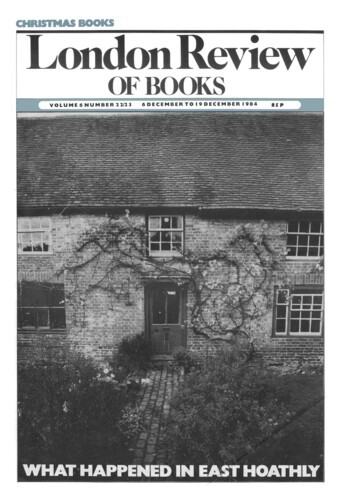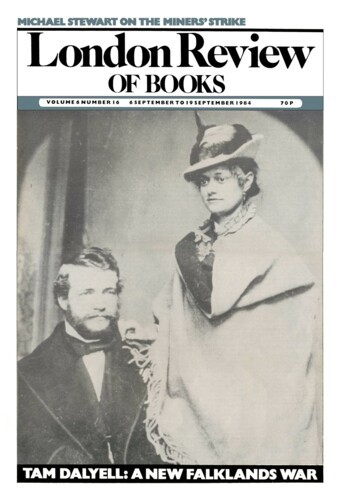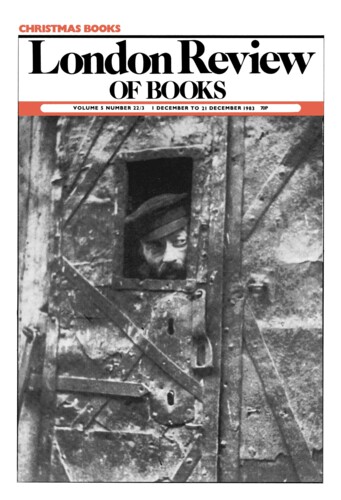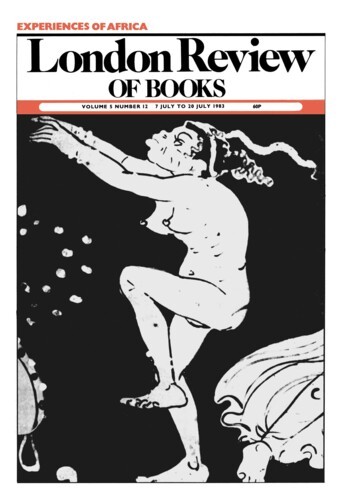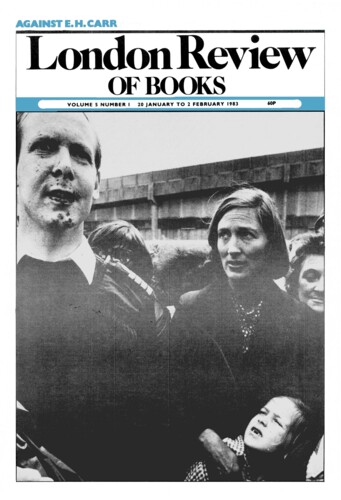Poem: ‘Xerox’
Blake Morrison, 6 December 1984
They come each evening like virgins to a well: the girls queuing for the xerox-machine, braceleted and earmarked, shapely as pitchers in their stretch Levis or wraparound shirts, sylphs from the typing-pool bearing the forms of their masters, the chilly boardroom gods.
